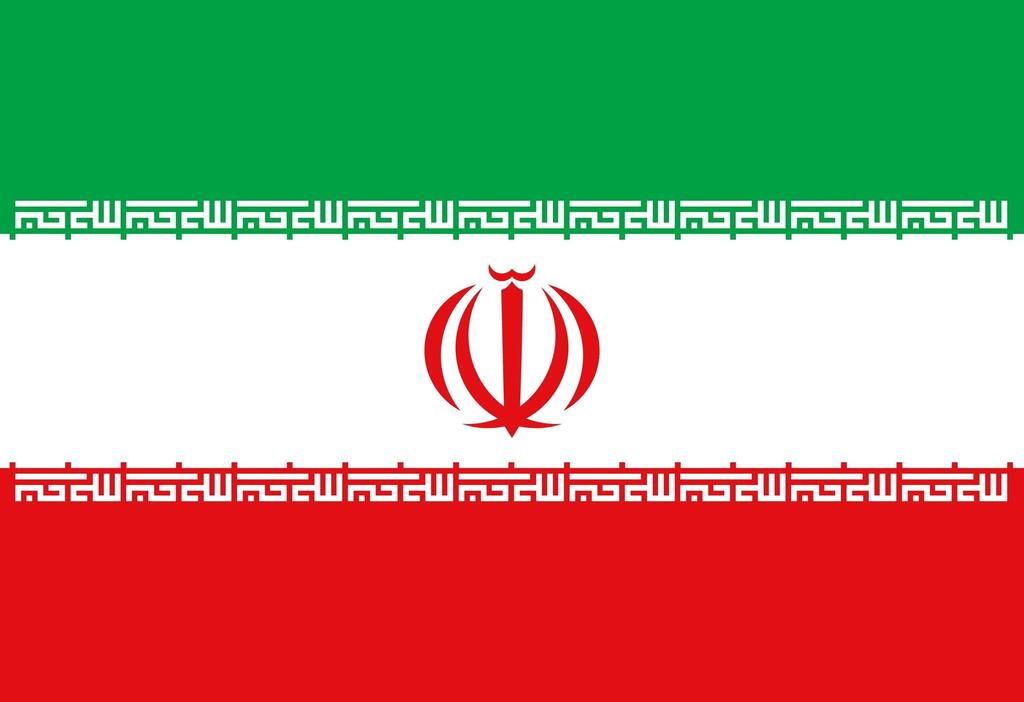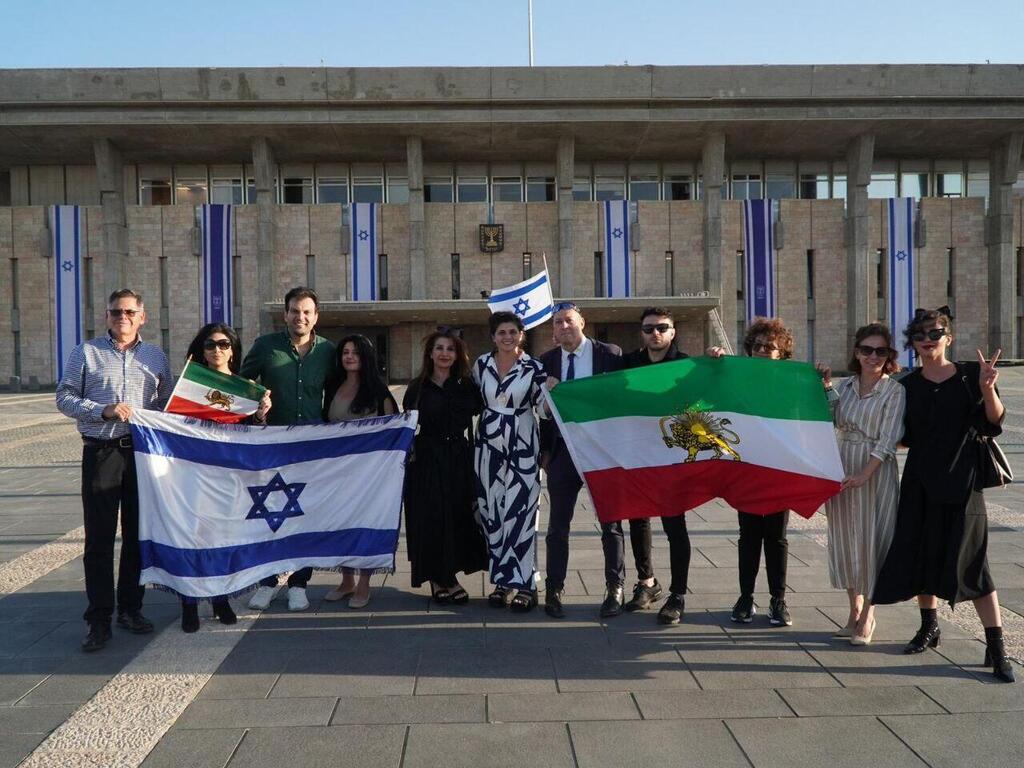Getting your Trinity Audio player ready...
In the annals of history, few relationships are as paradoxical today as that between Iran and Israel. Once natural allies bound by a rich tapestry of shared history and mutual respect, the two countries now stand on opposing sides of a deep ideological chasm.
The Islamic Republic's hostility toward Israel is not only a departure from Iran's historical norms but also a strategic blunder that undermines Iran’s national interests. Consequently, many Iranians view Israel as a potential ally in their quest to bring down the clerical regime and transform their nation.
Amid the wave of anti-Israel protests across the West since Hamas’ terrorist attack on October 7, 2023, Iranians stood out as perhaps the only Middle Eastern diaspora to express solidarity with Israelis confronting rising antisemitism. Iranian activists in major cities throughout the United States and Europe marched side by side with Jewish communities, demonstrating their support for Israel in its struggle against Tehran's terrorist proxies.
Many Iranians, particularly the youth, have voiced growing frustration with the Islamic Republic’s ideology and foreign policy in recent years. Economic hardship, political repression, international isolation and Tehran’s regional aggression drive dissent, as exemplified by slogans like "No to Gaza, no to Lebanon, my life for Iran" during the 2009 Green Movement and "Death to Palestine" in 2018. After the October massacre, soccer fans echoed similar anti-Palestinian chants in Tehran. These are not expressions of xenophobia but demands for a reorientation of national priorities.
Iran’s third generation since the 1979 Islamic Revolution—comprising Gen Z and millennials—has firmly embraced a pro-Israel stance. In October 2023, this shift became evident when students, protesting school administrators who sought to force them into chanting “Death to Israel,” defiantly reversed the slogan to “Death to Palestine.” Similarly, students at Tehran University made a powerful symbolic stand when they refused to walk over a painted Israeli flag on the floor.
Various surveys conducted by both Iranian and international pollsters consistently show that most Iranians oppose the Islamic Republic's antisemitic and anti-Western foreign policy. Considering the regime's tight control and the population's fear of reprisals, polling in Iran may be unreliable, yet these findings have remained remarkably consistent over time.
For example, a poll commissioned by Israel's Foreign Ministry and conducted by the Paris-based Ipsos Group in 2022 showed that a majority of Iranians support better relations with Israel and condemn the regime's backing of terrorist organizations. Similarly, a 2021 study by the Netherlands-based Group for Analyzing and Measuring Attitudes in Iran research foundation revealed that most Iranians reject the regime's "Death to Israel" rhetoric.
The history of Iranian-Jewish relations reveals a sharp contrast between the pre-Islamic and post-Islamic eras. In 539 BC, Cyrus the Great of the Achaemenid Empire liberated Jewish exiles from Babylon, earning him praise in the Hebrew Bible. His policies of religious tolerance and cultural inclusivity allowed diverse communities, including Jews, to flourish under Persian rule. This golden era gave way to hardship in post-Islamic Iran, where Persian Jews endured persecution, particularly under Qajar rule, as Shia clergy incited pogroms and forced conversions.
The Pahlavi dynasty sought to restore the principles of Iran's pre-Islamic heritage with secular reforms and modernization. Iran was the second Muslim-majority nation to recognize Israel, establishing diplomatic relations in 1950. The two countries forged robust ties in trade, intelligence and military cooperation. Israeli engineers helped develop Iranian infrastructure, while Iran supplied Israel’s energy needs. The relationship was pragmatic, mutually beneficial and rooted in a shared apprehension of hostile Arab nationalism and Islamism.
 Saeed Ghasseminejad
Saeed Ghasseminejad Yet the 1979 Revolution marked a dramatic shift in Iran-Israel relations. Under Ayatollah Ruhollah Khomeini, the Islamic Republic’s first supreme leader, Israel was recast as an enemy of Islam. The regime severed ties with Israel, turned its embassy into a Palestinian mission and targeted Jewish figures like businessman and philanthropist Habib Elghanian, whose execution in 1979 under the trumped-up charges of espionage for Israel sent a chilling message to Iran's Jewish community.
As Iranians endure the oppressive reign of the Islamic Republic, it is difficult for them not to reflect on the significant role Palestinians played in supporting the 1979 Revolution. During that time, a range of Islamist and leftist factions in Iran—among them the Khomeinists and the Islamo-Marxist Mojahedin-e Khalq—received training and military support from fighters of the Palestinian Liberation Organization (PLO). Just days after the revolution succeeded, PLO Chairman Yasser Arafat arrived in Tehran to celebrate the triumph alongside Khomeini.
 Janatan Sayeh
Janatan SayehIt is in this context that the exiled Iranian Crown Prince Reza Pahlavi traveled to Israel in 2023, breaking a taboo, met with Israeli prime minister and president and brought the message of peace and friendship on behalf of many Iranians.
Iranians increasingly recognize that Iran and Israel share common interests: Both are non-Arab states in a largely Arab region, both have historical grievances with Islamic extremism and both stand to benefit from regional stability. As the memory of ancient bonds and mutual respect persists, many Iranians are realizing that their future prosperity lies not in isolation, but in embracing natural allies.
- Saeed Ghasseminejad is a senior Iran and financial economics advisor at the Foundation for Defense of Democracies (FDD); Janatan Sayeh, who is Jewish, is a research analyst. Both were born and raised in Iran



